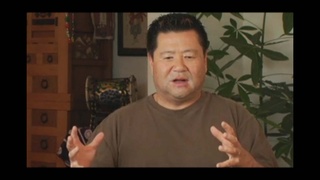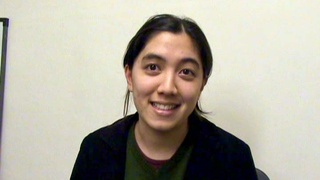Interviews
Acculturation
Moving here, looking like a Japanese and not speaking it really felt strange. I think if no one said anything, it would be OK, but the fact that people would be kind of upset or kind of look at you funny and they would talk and talk and talk and it’s like, “I don’t understand.” Finally, we learned, “Wakarimasen” you know, and they just kind of look at you like, “Are you just dumb? Are you retarded? Are you slow? What’s wrong with you?” Then I had people, you know, really trying to tell me what they’re doing and trying to explain something to me to make sure that I felt included and I felt so bad. So I would try to understand and I’d look like I’m kind of understanding. And when they laugh, you laugh. But in reality, I mean I understood nothing.
Living in Japan but going to an American school is like living in America unless you have Japanese friends. So my Japanese didn’t grow at all until I graduated from ASIJ, went to Sofia and joined…and started this beauty school. Because it forced me to have Japanese friends that really wanted to talk to me but couldn’t and I really wanted to talk to them but couldn’t. So we’d draw pictures and there was one gentleman in our class that kind of spoke a little English and he would be like our translator. So I mean friendships grew from that and my Japanese got a little better. I can’t say that I understood everything. I used to go home with headaches after school, especially after I graduated high school because I could understand less than half of what the conversation was. And I like talking. I’m sure that surprises you. But you know, I like talking with people and I like being with people so not being able to speak with them or understand what they’re saying or not being able to express what I want to say was very frustrating.
Date: September 3, 2003
Location: Tokyo, Japan
Interviewer: Art Nomura
Contributed by: Art Nomura, Finding Home.
Explore More Videos







Retaining Japanese customs (Spanish)
(b. 1950) Nisei Chilean, Businessman

Advantages of being Nikkei (Spanish)
(b. 1950) Nisei Chilean, Businessman


Childhood shame for being Nikkei in Enumclaw, Washington
Judge, only Japanese American to serve on CWRIC.

On the Impact of the Camp Experience
(b. 1942) The first Asian American woman judge

Thoughts on the term, "Nikkei"
(b. 1949) Musician and arts educator and adminstrator.

Studying Japanese to understand her grandfather (Spanish)
Sansei Argentinean

Japanese language is the important aspect to keep identity (Spanish)
Sansei Argentinean

Post-redress future of Japanese Americans
Judge, only Japanese American to serve on CWRIC.
